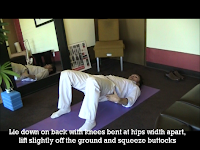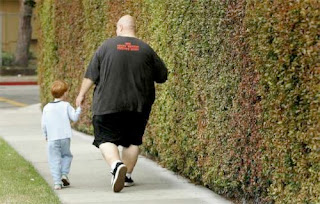Low back pain, hip pain and knee pain can all originate from a weak pelvic girdle. When the muscles of the butt and pelvis get weak, the low back loses support–add in a weak abdominal core and you’ve got a recipe for disaster.
In my West Hollywood chiropractic office, I always evaluate the pelvis and buttocks muscles, which are also known as the gluteals. The gluteus maximus is the main muscle of walking, as it is the primary hip extensor–a movement necessary to bring the leg back during walking (gait) cycle. The gluteus medius is the muscle that holds the pelvis upright as we stand. When the glutes get weak–or perhaps lazy is a better word–they need to be isolated and strengthened.
No muscle can be totally isolated because muscles work together–synergistically–as a group. However, there are two exercises that are outstanding for isolating the gluteal muscles as much as possible. The first is called gluteal bridges, and if you watch the video below, you can see a great version that will not only strengthen the gluteus maximus muscles, but will also help correct any muscular imbalances that are in place, whereby one side becomes stronger or weaker than the other. The second exercise is called hip abductions and we’ll save that for another post.
You should have your work cut out for you with the gluteal bridges I demonstrate in the video, so watch and practice. If you are not sore the next day, then you aren’t doing them right. But don’t worry, you’ll be sore…
















